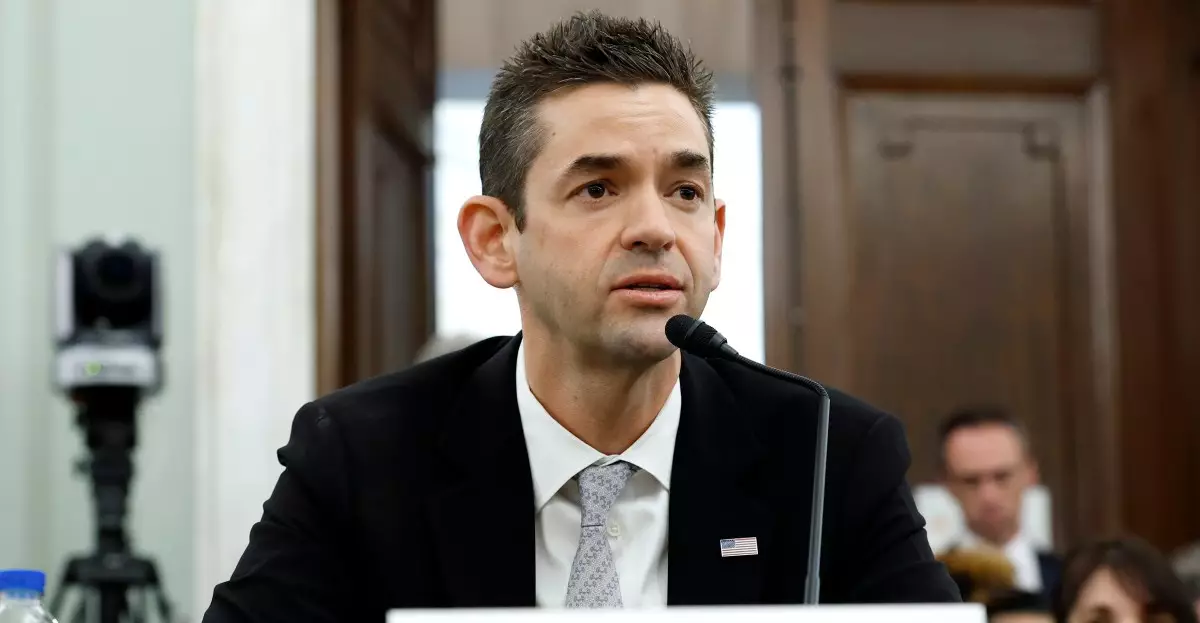The recent fallout surrounding Jared Isaacman’s stalled nomination to lead NASA exposes the intersection of politics and the advancement of space exploration in a way that is both fascinating and troubling. Isaacman, a billionaire entrepreneur with notable achievements in commercial spaceflight, appears to have been hamstrung by his previous political donations to Democratic figures. This highlights how financial affiliations in the political arena can dramatically impact leadership opportunities, especially in organizations that are heavily influenced by government policy.
Isaacman’s nomination, once championed by those who recognized his contributions to the burgeoning space industry—like piloting the Inspiration4 mission—now bears the weight of a politicized landscape. Reports indicate that former President Trump intervened after discovering that Isaacman had financially supported candidates outside his political party. The political implications here aren’t just about one individual’s career; they signal a broader trend where political loyalty may overshadow merit and visionary potential in key leadership positions.
Contrasts within NASA’s Vision and Funding
While the political intrigue surrounding Isaacman unfolds, another critical dimension adds layers to the narrative: NASA’s budgetary constraints. With a proposal to reduce NASA’s funding by nearly 25%, the agency appears to be heading toward an unprecedented era of frugality. Such cuts—including a staggering 47% decrease for science programs—might lead to a stagnation of the agency’s most innovative and exploratory initiatives.
The Planetary Society’s staunch criticism of the budget offers a window into collective disappointment among experts and space enthusiasts. The phrase “extinction-level event” isn’t just hyperbole; it encapsulates the sentiment that these budgetary changes could cripple NASA’s ongoing projects, which have largely drawn public support and investment. Ironically, the fate of space exploration rests in a fragile balance made precarious by political gamesmanship and fiscal short-sightedness.
The Role of Leadership in NASA’s Future
With Isaacman’s nomination effectively withdrawn, the search for a new NASA Administrator becomes all the more critical. The White House has stated the importance of a candidate aligned with the political agenda of the administration. This raises further concerns about how future leadership decisions will prioritize political coherence over technical competency or visionary capabilities.
In the fast-evolving domain of space exploration, the lack of a leader with a robust understanding of both technological nuances and political landscapes can thwart progress. Unofficial sources suggest that various factions within NASA and the broader space community have significant concerns about moving forward without a strong figure at the helm. This situation is ripe for breeding stagnation, as the current political climate zeroes in on narrowly defined ideological lines, leaving little room for diverse and progressive thought in an era when innovation is critical.
Implications of a Partisan Space Agency
Perhaps the most alarming takeaway from this saga is the perception of NASA as a partisan institution. Space exploration should ideally transcend political divides, driven by human curiosity and the quest for knowledge rather than political allegiance. However, the implications of political donations stripping candidates of their rightful opportunities leave a bitter taste and raise questions about the integrity of NASA’s mission in the collective pursuit of space exploration. As we stand at the precipice of a new space age, it’s essential to advocate for leaders who prioritize innovation, exploration, and the dissemination of knowledge, rather than narrow political agendas.

